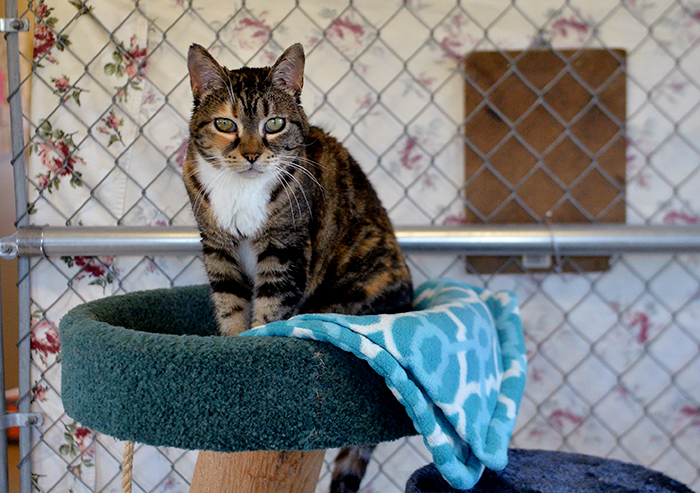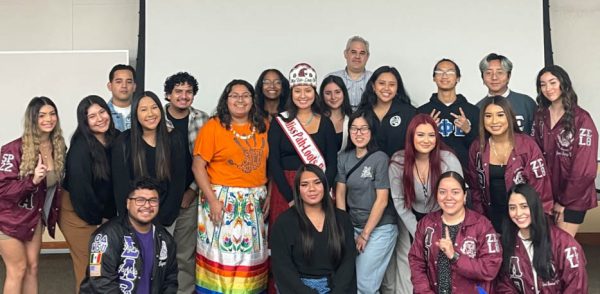Taking care of local animals until they find their forever home
April 13, 2017
The Whitman County Humane Society (WCHS), established in 2000, exists on a deep respect for animals, as well as the value of a human-animal bond.
Leslie Krieger, director of shelter operations at WCHS, said the shelter provides a sanctuary for stray pets with several active volunteers and seven paid staff who care for companion animals until they find a home.
The animals come from everywhere in Whitman County and other neighboring areas. They are either found as strays or owners will “surrender” them – some animals found in WCHS were even abandoned, Krieger said.
The most common animals that owners surrender or are found roaming around tend to be cats, dogs and rabbits. However, there are occasional peculiarities that arrive in the shelter.
“We have a rat that came in as a stray a bit ago,” Krieger said.
WCHS will accept any companion animal as long as the shelter has the room and resources to support it. Dogs, cats, reptiles, rodents, rabbits, guinea pigs and small pets are all accepted at WCHS, and the same is true for transfer animals, she said.
In addition to having proper resources, it is also important for the staff to be capable of taking care of specific animals. For example, if no staff members know how to properly take care of a snake or a ferret, the shelter probably will not take it in, Krieger said.
After three days, every stray that the shelter takes in officially becomes WCHS’s property if there is no identification on the animal or the owner cannot be found. This is when the shelter can medicate the animal if needed, she said.
A typical stay for animals at WCHS can range from a few weeks to several months. The strays who come to the shelter are kept for seven days before they are put up for adoption, Krieger said.
Every animal will be spayed or neutered, microchipped, vaccinated, tested for internal parasites and cleared with a clean bill of health from a doctor of veterinary medicine, she said.
For the most part, strays that come in are in fairly good condition, approximately 20 percent are too skinny or have fleas or ticks. There are rare extreme cases, but when this does occur, the animal is sent directly to the veterinary teaching hospital at WSU until they are healthier and can return to WCHS, Krieger said.
The Hope Fund, a compassion fund for animals that have curable but serious medical conditions, such as a cat that got hit by a car and needed a leg amputation, makes caring for shelter animals at WCHS possible, she said.
A board of directors determines whether an animal should be given money from the Hope Fund for treatment. This system grants a better budget for the shelter so WCHS can take care of more critical medical cases, Krieger said.
WCHS is a nonprofit organization supported primarily through the donations of residents in the community, making community outreach significant for the shelter.
WCHS holds its annual Fur Ball, a silent auction and dinner accompanied by an appearance of companion animals. This event generates 20 to 25 percent of the shelter’s operating budget so it can continue supporting animals, Krieger said.
In addition to the Fur Ball, WCHS also offers many outreach programs such as a spay and neuter system program, a pet food bank, a trap-neuter-return program and a microchip clinic.
“We’re always looking for ways to do community outreach,” Krieger said. “We understand that the bond between humans and animals doesn’t start in a shelter – it starts everywhere.”
While working closely with the shelter animals for extended periods of time, Krieger admits that she’ll occasionally get attached to some of them. However, knowing the creatures will find happy homes makes letting go of the animals easier, she said.
“Being able to spend time with animals and see their transformation after our love and care is rewarding because we know we did that,” Krieger said.
Although Krieger was not expecting to work in a humane society, she admits that doing so has awakened a passion to help creatures in need.
“I get to work with animals,” she said, “who doesn’t want to do that?”

















